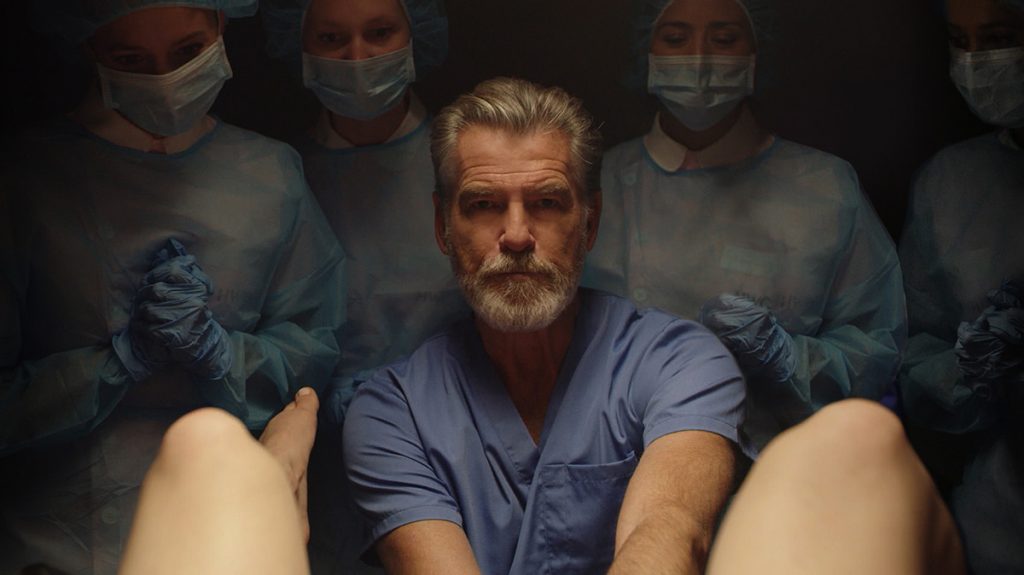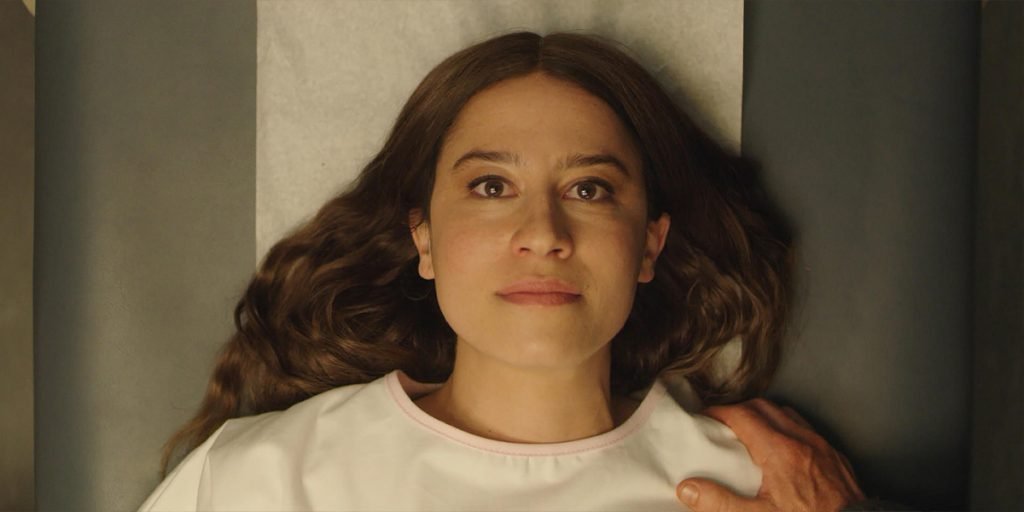Ilana Glazer shines in pregnancy thriller False Positive, but despite its clever premise, the film is ultimately a melting pot of themes and themes.
Film is an exceptional medium. It can immediately transport us to a different time an place, bringing stories to life in the most immersive way possible. It can take us on a journey and it can make us feel an impressive range of emotions, by having us identify with a relatable protagonist who goes through a series or ordeals. But it can also give filmmakers the means to create something so realistic that it can alter our very notion of reality, making us believe that what we see on the screen is happening exactly in the way it’s been depicted, only to turn the tables at the very end when revealing the truth. And so, we get all those unique genre hybrid films that defy definitions, featuring unexpected changes of tone, villains who turn out to be heroes, and clever, shocking twists we didn’t see coming. But when the things we can’t explain take up almost the entire film’s runtime, and are ultimately resolved in a reveal that is so underwhelming and predictable that it actually becomes laughable and loses all credibility, that is a real shame.
There’s a lot of potential in John Lee’s (Broad City) pregnancy thriller False Positive, revolving around Lucy (Ilana Glazer, of Babes, who also co-wrote the film’s screenplay), a pregnant woman who puts her trust in an illustrious fertility doctor only to realise that something sinister might be going on, and that something might be wrong with her pregnancy. When Lucy begins to have doubts on Dr. Hindle’s (Pierce Brosnan, of The World is Not Enough) intentions and sets off to uncover the truth, she finds herself completely on her own, having to deal with a whole lot of condescending people — from friends and acquaintances to the clinic’s medical staff and even her own boyfriend, Adrian (Justin Theroux, of Mulholland Drive), who is a former student of Hindle’s — who treat her as if she were being “obsessive” and “hysterical”, blaming her “mommy brain” instead of taking her seriously.
As things escalate and the tension rises, Lucy’s pregnancy becomes a nightmare, and we begin to question everything we see. Until the mystery is solved, right at the very end, replacing a timely, well-crafted exploration of issues of consent, sexism, and societal stereotypes, with a highly foreshadowed resolution that verges into parody. Which makes False Positive an unusual combination of highly effective scenes that keep us at the edge our seats while making us question our own behaviour and biases towards pregnant women (and women, in general), and an uninspired resolve that risks outshadowing the rest of the film’s runtime.

When False Positive is at its best, it is highly effective at sending across an important message in a subtle way, making us incredibly uncomfortable when witnessing the dismissive way in which Lucy’s entire world reacts to her rightful doubts. Even though the film has many seriously distressing (and potentially triggering) scenes that place Lucy in a series of unpleasant situations in which men take advantage of her, both mentally and physically, what gets to us the most are all the talks of “mommy brain” and “pre-natal depression” coming from the very same people who praised her for “glowing” when her pregnancy was announced. From the moment Lucy gets pregnant, both men and women (including a great Sophia Bush, who plays a friend of Lucy’s) stop talking to her as a human being and only see her as a “pregnant person” instead.
At first, they drown her in unsolicited, clichéd compliments that every single mother-to-be has heard too many times. Then, they refuse to listen to her concerns, telling her to stop “obsessing” over a perfectly normal situation, and that “there’s no need for hysterics”. This is when Glazer and Lee’s script is at its most effective, bringing our attention to all those condescending words that have been used to diminish and undermine women for centuries. But then, it becomes more subtle. Not only do the people in Lucy’s life begin to make decisions for her, without even getting her involved in the fate of her own unborn child, but they blame her for her reactions. “Be better”, they tell her, manipulating her into questioning her own sanity, and placing the responsibility for their own conduct entirely on her. A very effective scene sees Adrian praise Dr. Hindle for the fact that he “got us pregnant”, right before blaming Lucy, and Lucy alone, for her struggles: the film highlights how easy it is for men to take ownership of women’s experiences, only to share the burden that originates from them in a very selective way. Once again, this shows how clever the film’s screenplay is at calling us out for our own conduct, and urging us to be better.
Which is why it’s such a shame to witness the film abruptly switch tone towards the end, first with a reveal that not only you’ll have seen coming if you’ve paid attention to recent news, but that also feels oddly irrelevant to the film’s progression, as it doesn’t really explain many of the tension-filled scenes we’ve had to withstand in the first half of the movie. Then, the film begins to verge into magic realism, which is when it becomes painfully clear that the Peter Pan metaphors have more than outstayed their welcome. Not only that, but there are also a series of themes and situations that feel like they’ve been crammed into the movie for added commentary, such as a character (played by the excellent Zainab Jah, of Farewell Amor) whose purpose in the film remains unclear, as well as a sexual relationship that don’t really add anything to the respective characters (if anything, it deprives them of depth).
How long can a film sustain tension-filled scenes, bloody imagery and uncomfortable tones, no matter how clever its screenplay, before it all begins to become a little too much? If False Positive shines when it draws attention to many issues that are unfortunately faced by the majority of women today, it fails to provide us with a consistent narrative arc for its protagonists, as well as a believable resolution for the film’s mysterious mishappenings. Though this undoubtedly makes the film a missed opportunity, False Positive is still worth watching for a thought-provoking first half of the movie, made even more compelling by a really great performance by Ilana Glazer.
False Positive premiered at the 2021 Tribeca Film Festival and is now available to watch on Hulu. Stream False Positive!

